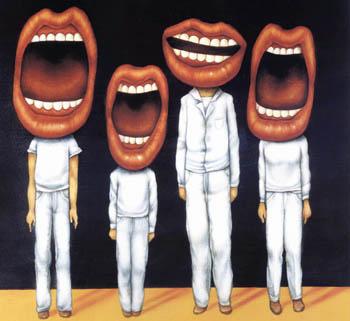 By Alan Bean
By Alan Bean
January 8, 2014 marked the fiftieth anniversary of president Lyndon Johnson’s war on poverty and Democrats and Republicans used the occasion to tout their very different descriptions of and proscriptions for the poverty problem.
If this low-key exchange were scored like a fight, the Republicans would win by TKO.
This article in The Hill, a generally non-partisan news source, quoted representatives from both major parties; but the red team dominated the story.
The Democrats were championed by president Obama and Senate majority leader, Harry Reid. In a speech tailor made for the occasion, the President opined that “If we hadn’t declared ‘unconditional war on poverty in America,’ millions more Americans would be living in poverty today.” Reid, for his part, thinks the Republicans are “cold-hearted” for refusing to extend unemployment benefits. That’s it for the Democrats.
Then the Republicans took control of the story.
Senator Marco Rubio called the war on poverty a failure, noting that “We have four million Americans who have been out of work for six months or more. We have a staggering 49 million Americans living below the poverty line, and over twice that number — over 100 million people — who get some form of food aid from the federal government.”
Rubio also derided the move to increase the minimum wage to $10 an hour, because a wage that low is inconsistent with the American dream. The solution, he said, was to create better jobs with middle class salaries. The article notes that Rubio is touting a “flex fund” but no one asked him to define the term.
Rubio touts school choice as the antidote to poverty.
House majority leader, Eric Cantor, was also bashing the public school system, arguing that if we give parents more school choices poverty can be whipped.
Next, Rep. Dave Camp (R-Mich.), chairman of the House Ways and Means Committee, faulted the Democrats for focusing on checks in the mail instead of of job creation.
Then Rep. James Lankford (R-Okla.), chairman of the Republican Policy Committee, returned to the bad schools theme, accusing the Democrats of counting the number of aid recipients instead of the number of high school graduates.
I mention this story because it’s typical of the way the poverty issue is covered.
What’s the takeaway?
First, the Republicans are definitely on the offensive. They have a series of orthodox talking points and everyone stays on message. The argument is simple: reduce the tax burden on entrepreneurs and corporations and the poor will benefit from a rising tide that creates millions of high quality jobs. Improve graduation rates by privatizing education and more kids will be prepared for our high tech workforce. Eliminate assistance programs that make people dependent on government handouts and people will regain the self-respect required to re-enter the work force.
What do the Democrats have to offer in response? Piecemeal programs. Lots of them. They express concern about a growing wealth gap and fight to maintain the existing safety net. The message is muddled and philosophically obscure.
The Democrats aren’t faring well in the poverty debate because the Republicans have won the philosophical war. Sure, public support for things like extending unemployment benefits and raising the minimum wage is strong, but when the argument shifts to the roots of poverty, most Americans find the Republicans talking points convincing.
This explains why remarkably low Republican popularity ratings haven’t helped president Obama. The public sees the Republicans as obstructionists, while believing, somewhat paradoxically, that government assistance programs don’t work because they encourage dependency.
In consequence, Republicans look mean, Democrats look flabby, and public confidence in elected officials remains stuck in free fall.
Pundits on the right and left sound convincing because they are allowed to repeat their teams’ talking points without engaging the arguments advanced by their ideological opposites. The media specializes in two-minute segments in which professional propagandists swap bumper sticker slogans.

In 1964, poverty was largely defined as a white problem.
Many of our public assistance programs do encourage dependency, largely because, from the mid-60s on, poverty has been defined as a Black problem. We wanted to help those who could not help themselves, but we were damned if we were going to give a nickel to able-bodied black males who “just didn’t want to work.”
When only single parents are eligible for benefits you’re going to see more and more single parents. We need assistance programs that encourage the creation and maintenance of families with benefits that don’t disappear the minute you get a minimum wage job with no benefits.
No one wants to admit the ugly truth. With each passing year, the number of genuinely middle class jobs declines further. Reforming education is difficult when poor kids know they are playing a game of musical chairs in which most people have nowhere to sit when the music stops.
The teen pregnancy rate is a sign of despair and resignation. Young girls in desperately poor neighborhoods don’t believe they can improve their lot by staying in school and getting a good job. When the unemployment rate on your block is 40% and rising, the lure of the streets becomes overwhelming.
In 1964, when Lyndon Johnson declared war on poverty, America had a robust middle class and a solid manufacturing base. Jobs for the unskilled and uneducated were abundant. That is no longer true. We are a more wealthy nation now than we were fifty years ago, but all the money is going to a tiny slice of the population. We must find creative ways to break the cycle of despair and dependency–the conservatives have that right. But demonizing public education and blaming high rates of teen pregnancy and low rates of graduation on the immorality of poor kids won’t get us where we need to be.
So long as liberal and conservative talking heads are allowed to avoid the real issues, it’s hard to envision a better future.
